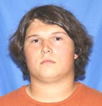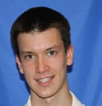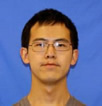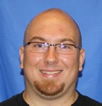Summer 2014 Undergraduate Research

Congratulations! Three ECE professors received funding for Undergraduate Summer Research Award Program. Also, ECE supports one additional summer research program. Typically, each project hires 2 students with the pay rate as high as $12 per hour for max. 30 hours per week for 10 weeks. Those who wish to participate, please contact the corresponding professor for more details. Application deadline is Friday, April 11. (Note that the first two projects do not accept applications.)
Title: Utilization of feedback from inertial vs. Kinect sensors in improving exercise accuracy
Advisor: Professor Nigamanth Sridhar (with Prof. Ann Reinthal and Debbie Espy, School of Health Sciences) (n.sridhar1@csuohio.edu)
Abstract: Exercise is a powerful intervention in both prevention of disability and rehabilitation. However, there are several difficulties with exercise. First, it is difficult to achieve patient adherence to a home exercise program. Second, it requires a great deal of practice (thousands of repetitions) to learn new movement patterns. Finally, incorrectly performed exercises are ineffective, or even dangerous. For these reasons, many prescribed therapeutic exercise programs require continuous supervision by a skilled clinician. With outpatient physical therapy sessions typically costing over $100, correct adherence to supplemental home exercises between sessions is essential for less expensive, safe, and effective care. One way to address this health care dilemma is through development of an inexpensive, virtual “exercise tutor" to provide monitoring and guidance for correct and complete home exercise completion. This new technology, the Exercise Tutor (ET), has the potential to decrease health care costs and increase access to care while concurrently improving the quality of that care. By merging several sensor technologies, this system can capture, record, and process the exerciser’s movement while concurrently providing targeted feedback to guide correct exercise completion.
Title: Security of Smartphone Communications
Advisor: Professor Ye Zhu (y.zhu61@csuohio.edu)
Student: Nick Ruffing

Abstract: The increasing popularity of Wifi-capable and 4G-capable mobile devices such as smartphones has brought a lot of attention and concern on the security and privacy of Wifi and 4G communications. In this project, we aim to find vulnerabilities and privacy leakages of the communications and then develop defense mechanisms.
Title: Multi-Objective Optimization for Prosthesis Design and Control
Advisor: Professor Dan Simon (d.j.simon@csuohio.edu)
Student: Taylor Barto and Michael Iannicca


Abstract: This research project involves the development of multi-objective evolutionary algorithms for leg prosthesis design and control. Evolutionary algorithms are computer programs that are based on natural processes such as species migration, natural selection, and insect swarms. Leg prostheses include multiple subsystems, such as power circuits, control systems, and mechanical systems. Prosthesis design includes multiple objectives, such as accurate knee angle tracking, high efficiency, and low cost. The separate optimization of related subsystems results in overly conservative designs. A more integrated approach is sought to treat the subsystem designs as distinct but closely-related problems. Desired qualifications include computer programming expertise (especially Matlab).
Title: A Computer-Vision Based Sign Language Recognition System
Advisor: Professor Wenbing Zhao (w.zhao1@csuohio.edu)
Student: Ali Mantash

Abstract: In this project, we aim to develop a comprehensive solution to the sign language recognition problem by integrating the Microsoft Kinect and LeapMotion sensors. The main objective of this project is to track ï¬ngers movement and hand shapes accurately, and achieve high degree of sign gesture recognition.
Title: Electrochemically enhanced production of ethanol
Advisor: Professor Siu-Tung Yau
Student: Zhenlu Song

Abstract: An electrostatic method to control and enhance the production of ethanol from glucose is available. The application of an electrical voltage to yeast-induced fermentation of glucose at room-temperature can be used to achieve accelerated production of ethanol. Under the influence of the voltage, the fermentation produces ethanol to reach the 12-14% vol. range of maximum concentration in 13 hours or less. The enhanced rate of production has been demonstrated with 1 liter glucose solution samples. The result is to be compared to that of the conventional ethanol fermentation, which is performed at 30-32 °C and takes 40 - 80 hours to complete. The method will enhance the production of ethanol by reducing the fermentation time and the extra energy used to keep the temperature at 30-32 °C. The method shows the potential of eliminating the use of the propagation tank employed to activate and grow yeast in the standard ethanol production. This will save time and lower the cost.
Title: Hardware security
Advisor: Professor Chansu Yu
Student: Chris DePolo and Jeanette Kalb

